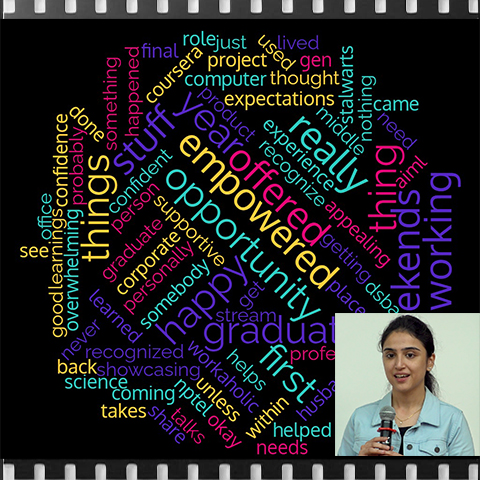M.Tech (Online) Degree Programme for Working Professionals
Learning never stops in this fast-changing world with development and advancements in every field. Keeping pace with them is important to be relevant to the context of work life. Here is a golden opportunity for employed engineering graduates to get a Masters degree from the top University in India, the Indian Institute of Science (IISc), Bangalore.
The M.Tech (Online) programme is designed for working professionals to pace themselves and complete a post-graduate degree at IISc that has the same rigour, intense learning and practice as our full-time M.Tech degree. The program covers not only conceptual classes, but also an in-house project work within your company that helps demonstrate and apply your learnings. All classes are conducted fully online and synchronously by experienced faculty members at IISc.
M.Tech (Online) provides the learners:
- Opportunity to complete the Masters degree in part-time, while continuing their fulltime job
- Flexibility to attend the classes online in the evenings and weekends to balance work and personal life
- Better career progression in their workplace through stronger foundational and technical skills, and/or a shift in technical area of expertise
- Ability to gain insights on the latest developments and apply them for practical impacts within their organization
- Gaining the personal satisfaction of completing a world-class degree from the #1 university in India
- Opening the gates to pursue a PhD in future
This is a sponsored degree program. Interested candidates need to be nominated by their company through a Memorandum of Agreement (MoA) that they have to sign with IISc.
.
 |
Eligibility Criteria BE/B.Tech/ME/M.Sc/MCA/MBA/BS (4 years) (relevant discipline corresponding to the course) with two years of hands-on industry experience. |
|
|
InstructorsIISc Faculty Members |
|
|
Course FeeDepends on the stream and will be between Rs. 8.8 lakhs – 10.0 lakhs for the entire programme. Fees are payable each term, based on credits enrolled.
|
|
|
DurationTypically completed in a 2-3 year period, with the flexibility of taking company-approved breaks in study. |
STREAMS OFFERED

Artificial Intelligence

Data Science and Business Analytics

Electronics and Communication Engineering
Programme Stats
%
have completed degree within 2.5 yrs (2021 batch)
%
Retention Ratio of students in the programme
students have enrolled in the programme over 3 years
Testimonials

Archita Tanwar
M.Tech 2021-2023
Electronics and Communication Engineering

Kavitha Ramachandran
M.Tech 2021-2023
Artificial intelligence

Darakshan Jamal
M.Tech 2021-2024
Artificial intelligence

Krishanu De
M.Tech 2021-2024
Artificial intelligence

Kedar Viswanathan
M.Tech 2021-2024
Electronics and Communication Engineering

Anish Aralikatti
M.Tech 2021-2023
Artificial intelligence

Rajani R
M.Tech 2021-2024

Sandeep Kumar
M.Tech 2021-2023
Artificial intelligence

Naina Gurung
M.Tech 2022-2024
Artificial intelligence

Henna Arora
M.Tech 2022-2024
Data Science and Business Analytics

Gurumurti
M.Tech 2021-2023
Electronics and Communication Engineering

Pathuri Sai Harish
M.Tech 2022-2024
Artificial intelligence




